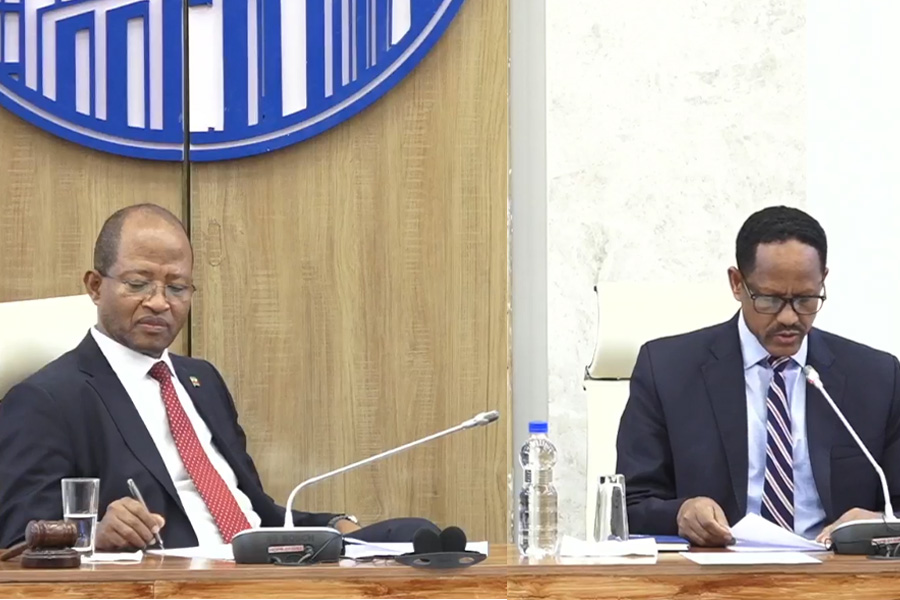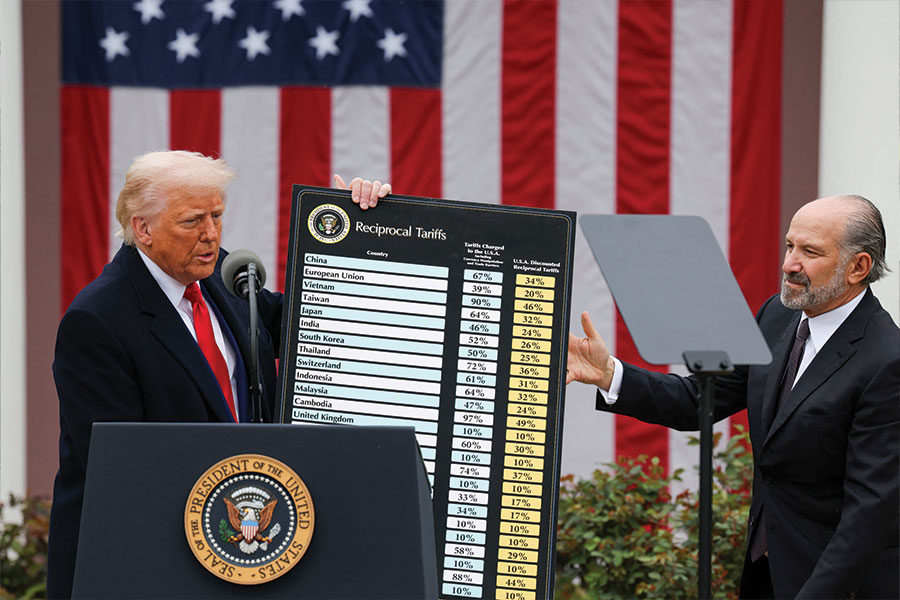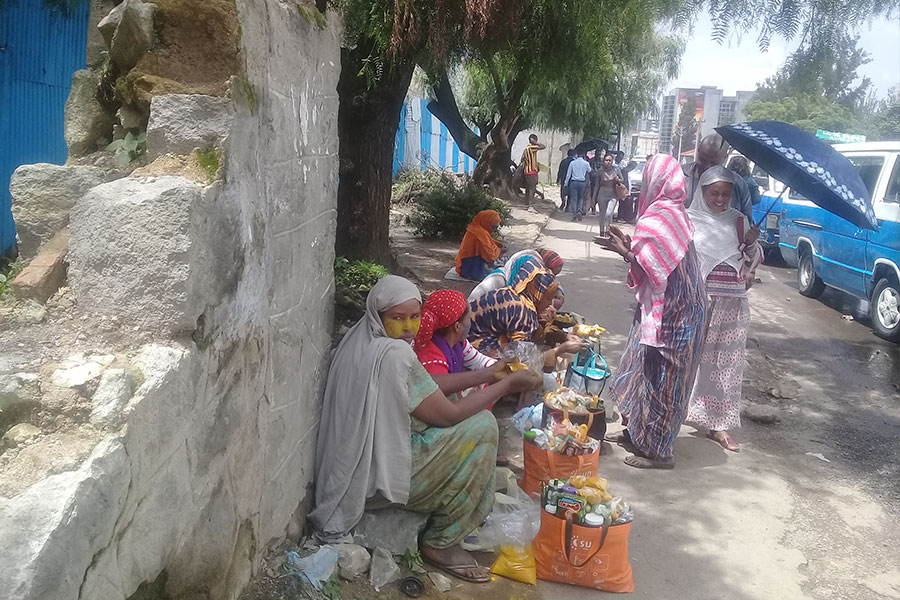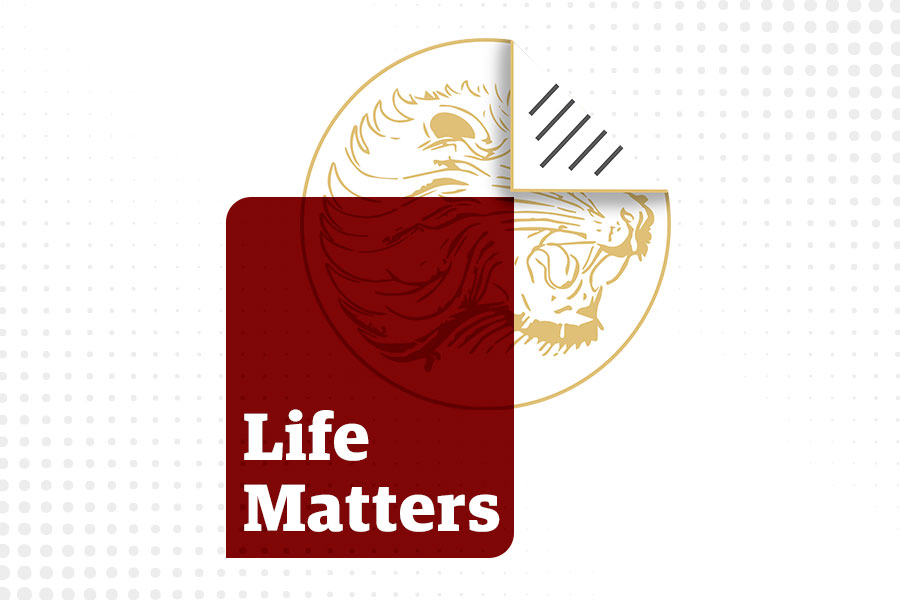
Radar | May 27,2023
The National Election Board of Ethiopia (NEBE) has implemented a sweeping hike in fees for political party registrations and document amendments. The move aims to discourage frivolous party formations and ensure financial sustainability for the Board.
The charge for full certification has jumped by 14,900pc, to 30,000 Br, while the cost for temporary certification has soared from 100 Br to 15,000 Br. Amendments to foundational documents now cost 5,000 Br—a staggering 16,567pc increase from the previous fee.
Officials explained the rationale behind the fee changes enforced last week at a press briefing at Skylight Hotel, Airport Road.
Woubshet Ayele, deputy chairperson of the National Election Board, underscored that the adjustments are designed to support the Board’s ability to provide essential services to political parties. He noted that 65 million Br in government funds was recently distributed to parties, continuing a policy in place since the introduction of multiparty politics in 1991.
Woubshet remarked that some parties appear to be formed primarily to access public funds rather than pursue genuine political goals.
“We’re not aiming to profit from these fees but to discourage those who enter just to share the fund,” he said.
Currently, there are 61 active registered parties while 11 have been suspended.
Some do not seem alarmed. Wasihun Tesfaye, executive secretary of the Ethiopian Citizens for Social Justice (Ezema), argues the new fees are justified, considering the previous rates that were too minimal, they could have been higher.
“Increased costs might enable more committed political parties, encouraging them to elevate standards and grow membership,” he said.
Others are cautious. Getinet Worku, a former secretary-general of the Enat Party, observes that the fee rise reflects a broader trend of escalating costs among service providers and could indicate that the Board needs additional funds for its operations. Despite these needs, he finds the increase surprising, though he acknowledges that the Board has also mandated larger membership thresholds to deter superficial party formation.
Last year, a 349 million Br annual budget was submitted to the Parliament for approval. Established under a 2019 Proclamation, the Board’s mandate includes registering and regulating political parties and ensuring they meet legal standards. The Board is responsible for handling disputes and grievances related to political party activities. It also engages in voter education and capacity-building for parties, media, and civic society to promote a competitive political environment.
Under the current regulations, forming a nationwide party requires 10,000 founding members, while regional parties need at least 4,000. Getinet believes the membership requirements were intended to reduce the proliferation of parties but suggests they have not fully succeeded. He recommends further restrictions to deter new party formations.
Woubshet compared fees in other African countries that far exceed Ethiopia’s new rates. In Kenya, temporary licenses cost 781 dollars, while South Africa reached 3,900 dollars. In Ghana, the permanent license fee is 3,125 dollars, while Gambia charges 14,493 dollars.
“Our fees are modest,” he noted. “We’re not required to consult political parties when adjusting fees.”
The Board faces challenges with parties that fail to meet legal mandates. Woubshet mentioned that of the suspended parties, six failed to meet quotas for women and disabled members—a requirement for receiving government funding. These parties, mainly regional, cited excuses ranging from technical errors and regional conflicts to poor record-keeping practices.
PUBLISHED ON
Oct 27, 2024 [ VOL
25 , NO
1278]

Commentaries | Aug 25,2024

Fortune News | Nov 24,2024

Viewpoints | Aug 10,2025

Radar | May 27,2023

Life Matters | Apr 22,2023

Dec 22 , 2024 . By TIZITA SHEWAFERAW
Charged with transforming colossal state-owned enterprises into modern and competitiv...

Aug 18 , 2024 . By AKSAH ITALO
Although predictable Yonas Zerihun's job in the ride-hailing service is not immune to...

Jul 28 , 2024 . By TIZITA SHEWAFERAW
Unhabitual, perhaps too many, Samuel Gebreyohannes, 38, used to occasionally enjoy a couple of beers at breakfast. However, he recently swit...

Jul 13 , 2024 . By AKSAH ITALO
Investors who rely on tractors, trucks, and field vehicles for commuting, transporting commodities, and f...

Oct 4 , 2025
Eyob Tekalegn (PhD) had been in the Governor's chair for only weeks when, on Septembe...

Sep 27 , 2025
Four years into an experiment with “shock therapy” in education, the national moo...

Sep 20 , 2025
Getachew Reda's return to the national stage was always going to stir attention. Once...

Sep 13 , 2025
At its launch in Nairobi two years ago, the Africa Climate Summit was billed as the f...